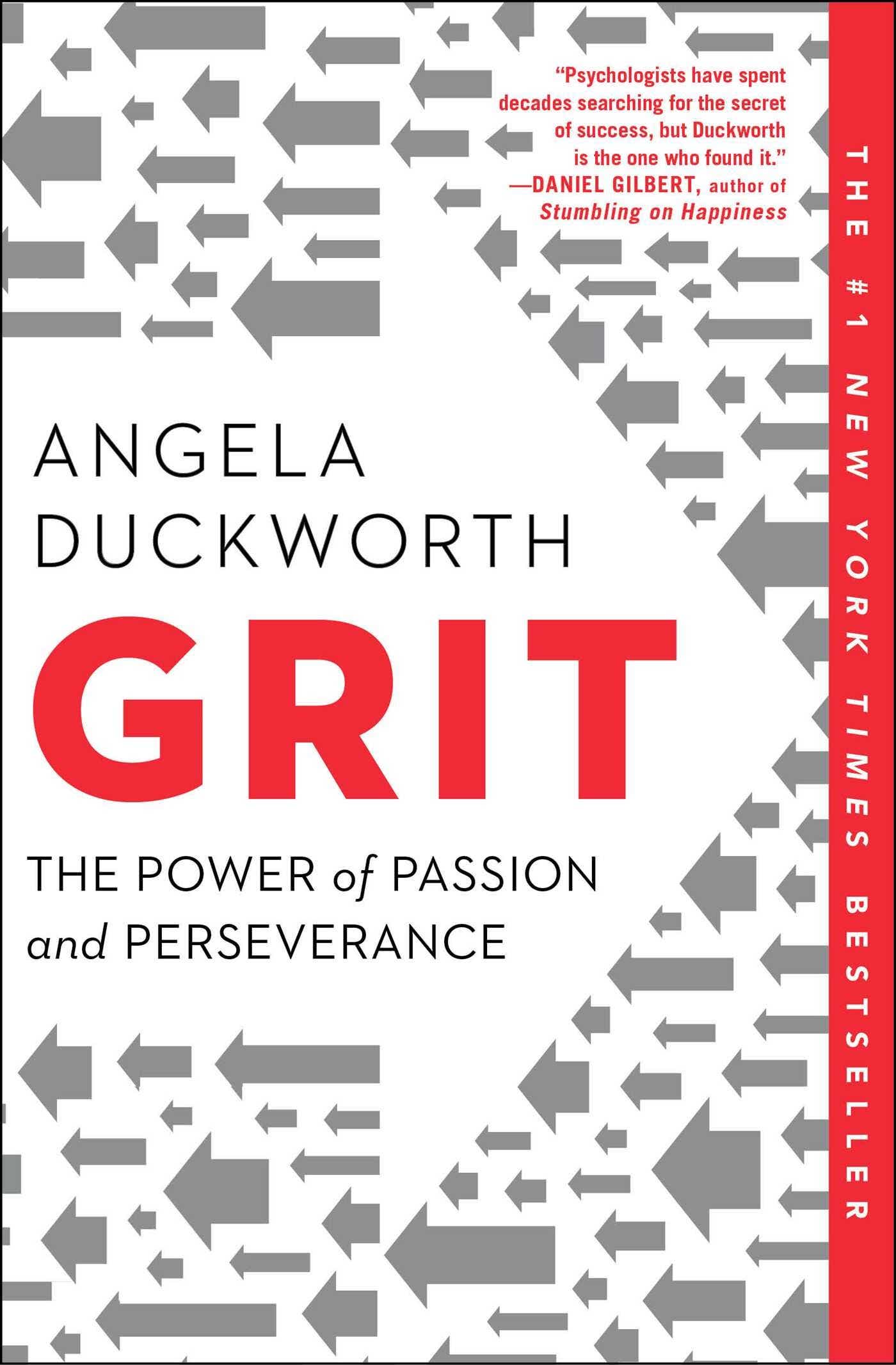Angela Duckworth’s Grit is almost three years old — and it’s still on the New York Times bestseller list. She defines grit as “passion and perseverance” and says it “beats the pants off I.Q., SAT scores, physical fitness and a bazillion other measures” in gauging potential for success.
To get your week off to a good start, read below for Angela’s most often asked questions (and her answers) about the power of grit…
Katie Couric: Okay, let’s start with the question you get asked more than any other: What is grit? Isn’t it the same as self-control or conscientiousness?
Angela Duckworth: Grit is passion and perseverance for long-term goals.
One way to think about grit is to consider what grit isn’t. Grit isn’t talent or luck or how intensely, for the moment, you want something. Instead, grit is about having what some researchers call an ”ultimate concern” – a goal you care about so much that it organizes and gives meaning to almost everything you do. And grit is holding steadfast to that goal. Even when you fall down. Even when you screw up. Even when progress toward that goal is halting or slow. Talent and luck matter to success. But talent and luck are no guarantee of grit. And in the very long run, I think grit may matter as least as much, if not more.
Grit is related to self-control and conscientiousness, but they’re not exactly the same. Someone demonstrating high self-control or high conscientiousness is also likely to score high in grit. But are they so similar that they actually measure the same underlying personality trait? I don’t think so. Studies show that grit predicts achieving challenging goals even when these other characteristics are held constant. For instance, grit is a more reliable predictor of making it through the first, tough summer of West Point military training than either self-control or conscientiousness.
That’s a really interesting distinction. Next up — When does grit matter most? Can a person be too gritty?
I don’t have any data that suggests there are drawbacks to being extremely gritty. Indeed, at the very top of the Grit Scale, I typically find individuals who are tremendously successful and also satisfied with their lives. However, as I mention in the last chapter of my book, this doesn’t mean we should dismiss the possibility of “too much grit.” In particular, I think you can be too stubborn about mid-level and low-level goals. You can throw good money after bad on particular projects that will never make sense. You can be blind to possibilities that you hadn’t originally anticipated. Still, I think these problems are mostly about lower-level goals that are in service of your high-level goals—those abstract and enduring concerns that are your sense of purpose.
I’m sure everyone will have an opinion on this one – Are women grittier than men?
In some samples, I’ve found that women score slightly higher on the Grit Scale than men. However, it’s not always the case. So there’s not enough solid data to claim a reliable difference in grit between men and women.
Is grit more important than kindness and honesty?
If I had to choose between my daughters growing up honest or gritty, I’d choose honest. If I had to choose between kindness and grit, I’d choose kindness. Grit is only one aspect of character, and for me, personally, it’s not the most important aspect.
Fortunately, I don’t see any necessary trade-off between goodness and greatness. I am encouraging my girls to cultivate their interests and a sense of purpose, because I want them to have a passion that guides them for their entire lives. I am also helping them learn perseverance. With guidance, they are learning to practice hard things every day, and to interpret failure and adversity as necessities of learning. My ultimate hope is that they lead honest, kind, and gritty lives.
Well said and I have the same hope for my girls. Isn’t grit either in your genes or not? Can you really grow grit?
The nature versus nurture question is as old as time. Here’s the answer from contemporary science: Yes, grit and everything else is influenced by genes. But grit and everything else is also influenced by experience. The short answer: I believe that grit can grow.
What do you do when you just feel tired and unmotivated?
When I’m tired, I try to rest. If life is a marathon, which I think it is, then you absolutely need to take care of yourself. When I’m unmotivated, I asked myself why I feel that way. Usually, it’s because I’m not doing what gives me the most energy. And without shirking responsibility, I try to change my to-do list. These days, I’m mostly reading scientific articles and designing experiments and writing up what I find. I’m 100% motivated to do that! It’s energizing!
When is it okay to quit?
Quit on a good day. Don’t quit on a bad day. By that I mean that you should quit because you could be doing something that’s more meaningful and interesting to you—but make that decision on a good day, so you’re thinking isn’t clouded by your emotions. Still in doubt? Ask someone who loves you for advice. They have psychological distance from the decision and have your best interests at heart.
And finally, everyone wants to know: How gritty are you, Angela Duckworth?
Truthfully, I’m pretty gritty. I absolutely love what I do. I know what I want in life. I have a top-level goal that I can articulate in a single phrase (Use psychological science to help children thrive). I’m always looking for ways to improve. And I work very, very hard.













